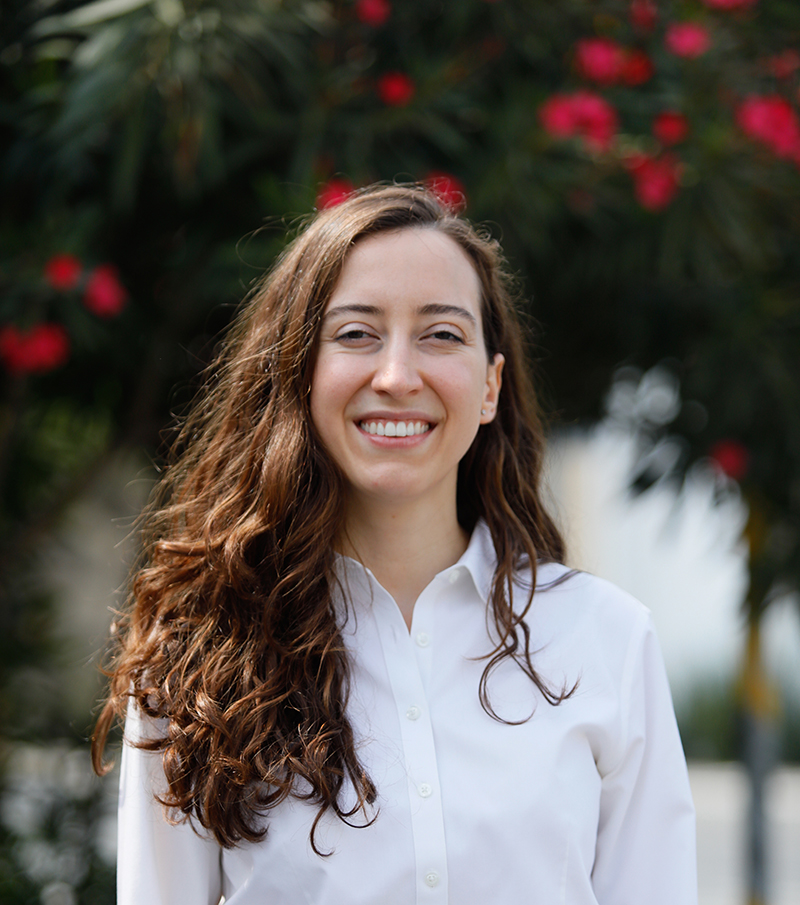 Rodríguez-Pliego is a scholar deeply committed to honoring the Indigenous nations on both sides of the U.S.-Mexico border and an advanced student of the Nahuatl language, in addition to being fluent in both Spanish and English. She is already becoming known as a pioneer in her field.
Rodríguez-Pliego is a scholar deeply committed to honoring the Indigenous nations on both sides of the U.S.-Mexico border and an advanced student of the Nahuatl language, in addition to being fluent in both Spanish and English. She is already becoming known as a pioneer in her field.
About Foundational Futures
Her dissertation begins with the premise that the traditional nation-states, which have shaped both U.S. and Mexican literary traditions, often ignore the alternative conceptions of nationhood embraced by Indigenous groups in both countries. Additionally, the nation-building efforts of the nineteenth-century, which strengthened governmental control throughout the Americas, frequently marginalized and harmed Indigenous nations, their languages, and their cultures.
Through extensive archival work in the U.S. and Mexico and engagement with Mesoamerican languages and knowledge systems, her dissertation addresses understandings of nationhood, migration and environment among authors who identify as Nahua, Laguna Pueblo, Mojave, American, Mexican, or Latinx, and seeks to trace transnational dialogues across these lines.
“The dissertation’s first chapter is a tour de force in comparative work, and an impressive achievement in archival research,” shares Esther Whitfield, Associate Professor of Comparative Literature and Hispanic Studies.
Through four chapters, her dissertation analyzes written and oral literature in Spanish, English, and Nahuatl, beginning with the Mexican Revolution (1910-1920) and concluding in the present day with ongoing population movement and the militarization of the U.S. - Mexico border.
The dissertation argues against the common confusion of Latinidad and Indigeneity, emphasizing the importance of distinguishing between the two. Each chapter of the dissertation pairs writers who offer unique perspectives on these terms.
Ralph E. Rodriguez, Professor of American Studies, Ethnic Studies, and English, shares that Rodríguez-Pliego “has dedicated years to studying and improving her Nahuatl. This knowledge allows her to deeply understand the cultures and communities from which that language emerges. Better grasping the history and legacy of Indigenous cultures in the Americas is important and urgent work.”
Rodríguez-Pliego explains that she began learning Nahuatl during her first summer of graduate school and continued with online lessons and summer courses throughout my six years at Brown, with the support of her department.
Learning a non-Western language became central to Rodríguez-Pliego’s reading and writing process. “Nahuatl has its own logic, structure, and worldview, so it has led me to question elements of English and Spanish I had previously taken for granted, things like place names, gender, and possession. I am very grateful to my Nahuatl teachers at IDIEZ, particularly Alma de la Cruz Cruz who has spent many hours on Zoom with me, explaining conjugations and sharing stories,” Rodríguez-Pliego shares. She found that working across languages was one the parts she enjoyed most about writing her dissertation.
Rodríguez-Pliego’s innovative research contributions reach across Latinx, Latin American, and Native American literature to generate new and interesting questions for each discipline.
Awards
An early version of the second chapter of her dissertation was awarded the Presidential Master’s Prize from the American Comparative Literature Association, as well as the
Albert Spaulding Cook Essay Prize from the Comparative Literature Department at Brown. It was also published in the leading journal Comparative Literature.
Rodríguez-Pliego was approached at a conference to have her third chapter, published in Revista de Estudios Hispánicos. The article was recently published as Malinche or Malintzin?: Indigenous and Latinx Reconstruction of the Colonial-era Interpreter.
She is currently expanding and revising her dissertation into a book manuscript that she hopes to publish with an academic press in the next few years.
Employment
While on the academic job market last year, Rodríguez-Pliego was invited to numerous campus
interviews and given three very competitive offers. She accepted a role at Northwestern University in a tenure track position as an Assistant Professor of English. She started a mere few weeks after defending her dissertation in August of 2023.
“It is an incredible honor to know that an external committee found value in my work. I am excited to share it with my main advisors Ralph Rodriguez and Esther Whitfield, who have envisioned and shaped the dissertation alongside me, as well as with my readers Stephanie Merrim and Gloria Chacón, who have given me so much of their time over the past few years. I am also thrilled to share the award with my family at graduation,” says Rodríguez-Pliego.
Doctoral candidates and graduates, Mariajosé Rodríguez-Pliego, Cel Welch, Laura Heuman Lark, and Giulia Buccione were selected for the Graduate School's Joukowsky Family Foundation Outstanding Dissertation Award. Prizes are awarded at the Doctoral Ceremony on May 26, 2024.